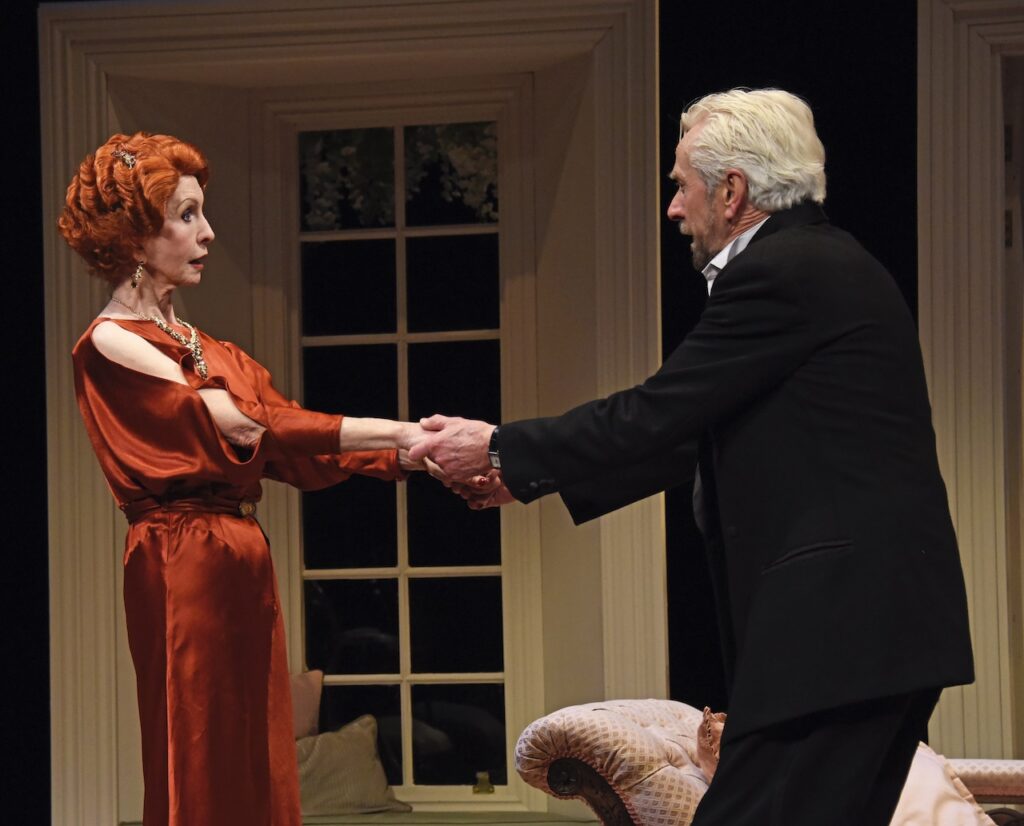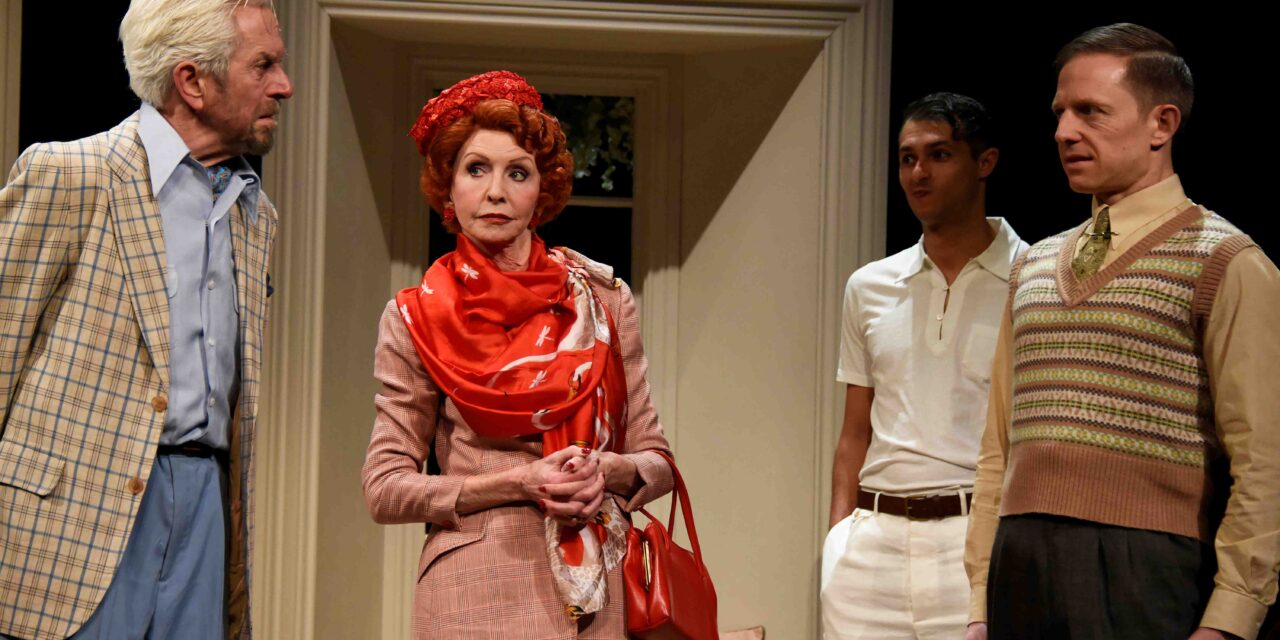
6 – 10 February
Somerset Maugham was a prolific writer of novels, plays and stories, hugely popular in his day, though less so in ours. His onstage repartee has something of the wit of both Wilde and Coward, though it lacks the brilliance and epigrammatic heights of either.
First produced in 1921, The Circle is a traditional ‘well-made’ play with three acts, a short time span, rising tension and a startling denouement. The single setting is a large country house, home of Arnold Champion-Cheney MP. At the outset Arnold is anxiously awaiting the arrival of his mother, Lady ‘Kitty’ Champion-Cheney, who walked out on the family thirty years ago, leaving him alone with his father, Clive. Neither Lady Kitty nor her lover, Hughie, were able to obtain a divorce, hence remarriage was impossible, and, though they have remained together, their current life is depicted as a bickering limbo of mutual disappointment. The difficulty in obtaining divorce in the 1920s gives the play its serious thread, throwing light on the rigidity and hypocrisy that constrained the lives of this privileged elite.
But though the play presents an interesting slice of social history, it does so via the lighter route of a comedy of manners, apparent from the outset when, inconveniently, Clive returns for a visit to his old country seat at the same time as the woman who abandoned him. To complicate matters, Arnold’s beautiful young wife Elizabeth is considering leaving her husband for a good-looking young war veteran. All this is set up deftly and with some cracking dialogue and delicious surprise encounters in the first two acts.
The stellar cast is headed by Jane Asher, who gives an engaging and amusing rendering of a woman who, having followed her heart, is left with little but fading looks and vanity. She is well matched by Clive Francis as her revitalised husband, and Nicholas Le Prevost as the lover turned grumpy old man. All the performances are strong, and the stage chemistry, movement and stillness are well judged. Indeed, there is an elegance to the production with its scrumptious period costumes, effective sound and music, and cool, balanced design. Director Tom Littler and set and costume designer Louie Whitmore have certainly created a believable world on stage. Yet there is something missing from the audience experience. It is as if we are witnessing, from afar, events that despite their historical significance, have little relevance to our lives. This is particularly the case in the second half when the drive towards a conclusion makes the action feel strained.
The production originated at The Orange Tree theatre in London, an intimate 200-seater in the round. It was then taken up by Theatre Royal Bath Productions who have brought it to Oxford. Thus, it may have suffered the fate of many transfers from a small to a larger space, a loss of emotional intensity. When an audience is observing subject matter that already feels distant, that loss is likely to be particularly pronounced.
★★★☆☆ Ros Carne, 7 February 2024
Photo credit: Nobby Clark


